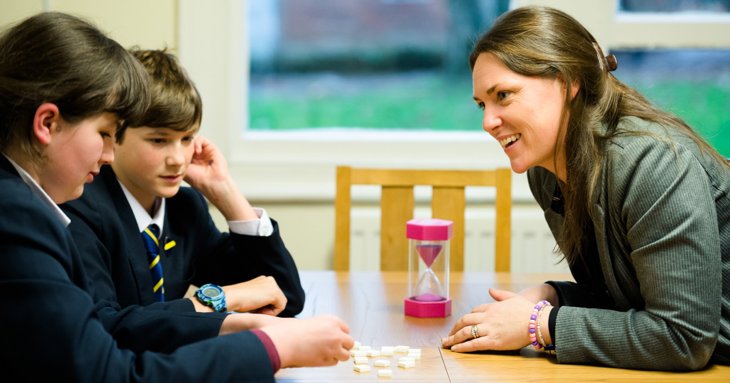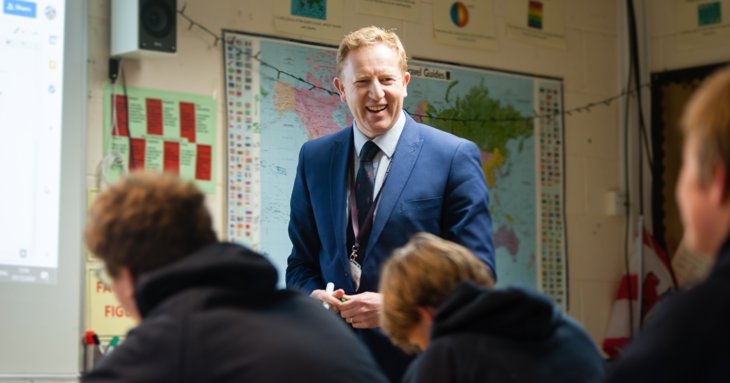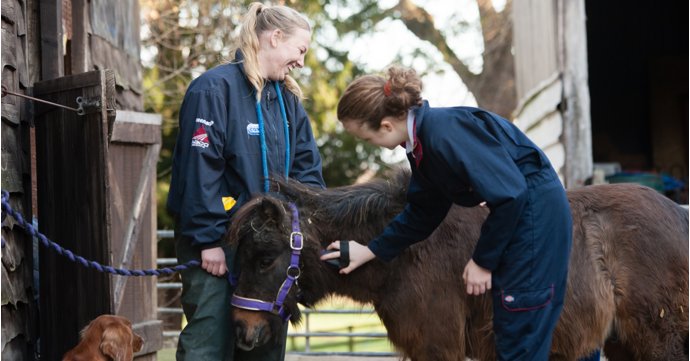A proud dyslexia-specialist school, Bredon School is on a mission to break down barriers to learning with its multisensory classes, unique vocational opportunities and leading specialist learning support team.
SoGlos spoke to expert teaching staff from Bredon School to learn all about its dyslexia-friendly approach to education, from how it uses assistive technology to support learning in the classroom, to how it delivers an inclusive curriculum designed to play to its pupils' strengths.
Meet the experts - Mr Nathan Monk and Mrs Jodie Grant from Bredon School
Mr Nathan Monk is the academic deputy head at Bredon School, responsible for designing and delivering an inspiring curriculum. He has worked in education for many years, in schools across the country and in higher education, working as a university lecturer in teaching before joining Bredon School in 2017.
Head of learning development Mrs Jodie Grant has been teaching for 18 years, working as a class teacher in the primary sector before moving to Bredon School to become a specialist learning support teacher in 2014. During her time at the school, she's achieved her SpLD and CPT3A qualifications, enabling her to assess students and make suggestions for exam access arrangements, and has been part of Bredon's SENCo team for seven years.
How is dyslexia-friendly teaching underpinned in the
curriculum at Bredon School?
Mrs Grant: Dyslexia is not seen as an excuse at Bredon School and all students are encouraged to develop ways to cope within the learning environment, by finding strategies which enable them to demonstrate their full potential. Teachers will aim to focus and draw on the strengths of the students rather than the barriers to their learning, using the interests of individuals to engage them.
Mr Monk: An expert staff body who understands the challenge of dyslexia underpin dyslexia teaching. Bredon School has specialist dyslexia-trained and qualified staff, who develop and plan lessons that allow dyslexic pupils to access, engage and demonstrate progress in each lesson within the curriculum.
Our teachers have gained British Dyslexia Association qualifications and receive regular updated training — our last INSET training focused on the effective use of assistive technology in the classroom for our dyslexic pupils, for example.
Mrs Grant: The wide range of opportunities available to students at Bredon also creates a buzz of curiosity and motivation across all subjects. Our students want to learn and do not use their difficulties as a reason not to embrace their education.
Can you describe some of the practical ways that lessons are made dyslexia-friendly at Bredon School?
Mr Monk: There are many practical ways to combine visual learning and audio with dyslexia-focused written communication resources. These three methods build memory retention and improve the recall of previous learning, helping pupils to develop a deeper understanding.
There are simple techniques that teachers make to ensure learning resources are accessible. For example, using dyslexia-friendly fonts where letters are spaced appropriately to ensure they do not become blended and harder to read.
Most importantly, we plan and deliver lessons that engage pupils' senses, are centred around activity and create connection. Learning involves solving problems, movement, teamwork and working towards goals. At Bredon, our pupils learn through doing and experience, not through copying, but creating.
Mrs Grant: Lessons are inclusive across the school. All teaching staff strive to make lessons multisensory and do not rely on simply listening, reading and writing. Smaller classes, high adult to student ratio and access to assistive technologies allow the students to take responsibility for their school work and produce finished pieces which they can be proud of. We also have English and maths taught every day on the curriculum.
Mr Monk: As a dyslexia-specialist school, we understand the need for pupils to have more time in these foundational subjects that underpin all other learning, hence the additional English and maths lessons in our curriculum.
How are the classrooms and facilities made dyslexia-friendly at Bredon School?
Mrs Grant: Assistive technology is key in supporting the students with independent work. Reading pens and speech to text facilities are available and encouraged in all lessons. Buff coloured paper is used throughout the school and black whiteboard pens are forbidden!
Mr Monk: Pupils are able to use voice recognition typing on devices when answering written questions. Technology is also able to read text to pupils, ensuring they can access information and demonstrate their own knowledge and understanding.
Bredon School also has facilities that provide practical learning experiences in an inspiring environment. For example, we have engineering workshops, our own working farm and study areas equipped with dyslexic specialist technology.
Mrs Grant: In the classroom, teachers will lead by example and there is a clear ethos of consideration and respect for each other. Calm environments help to create optimum learning and a setting where anxiety is kept low.
How does Bredon School support pupils with dyslexia to flourish in the area they are good at?
Mrs Grant: We celebrate the individuality of each and every student; identifying and utilising their strengths so that they are able to come to school and experience success. Our students are exposed to a wealth of learning opportunities which allow them to learn in ways which are not always the norm.
Mr Monk: We help our students to flourish in a particular area. For example, we have our own shooting range in the school grounds. Many dyslexic pupils have a weekly timetabled session with external coaches and have flourished in this sport. Our most recent head boy shoots for Team GB and is now aiming for the next Olympic games!
We have all kinds of subject-related clubs that enable pupils to spend more time in particular subject areas and learn further skills, including farm, design and technology and catering.
What kind of individual support does Bredon School offer to students with dyslexia?
Mr Monk: Dyslexic pupils are supported by our leading specialist learning support team, who deliver one-to-one and small group sessions that support all aspects of a pupil's learning. For example, providing further opportunities for independent reading, having fun using learning games, developing memory strategies using phonics and reinforcing the use of effective assistive technology.
This combination helps improve pupil self-confidence, increase self-esteem and become even better learners.
Mrs Grant: These sessions are designed to meet the individual need of a student and are part of their weekly timetabled lessons.
As a team, we pride ourselves on knowing every student; learning about their lives and what makes them tick. This nurturing approach creates an environment where all students are able to feel safe, secure and ready to challenge themselves.
Pupil Passports are generated with full input from the student and distributed to all staff — highlighting an individual's strengths and areas of difficulty as well as strategies which help an individual do their best.
Bredon School allows time on the curriculum for overlearning. What are some examples of overlearning and can you describe the advantages?
Mrs Grant: Overlearning is a vital component for our students. Information is delivered in small chunks and students are encouraged to use mind mapping and vocabulary banks throughout a topic in order to retain key words or information.
Additional support can be provided to students by our team of specialist teachers who deliver small group lessons focused on identified needs. This time is ideal for students to recap and the close relationship between subject and SEN teachers means that these lessons run alongside a student’s timetable seamlessly. Students embrace and value the additional time they are given in order to support their learning
























